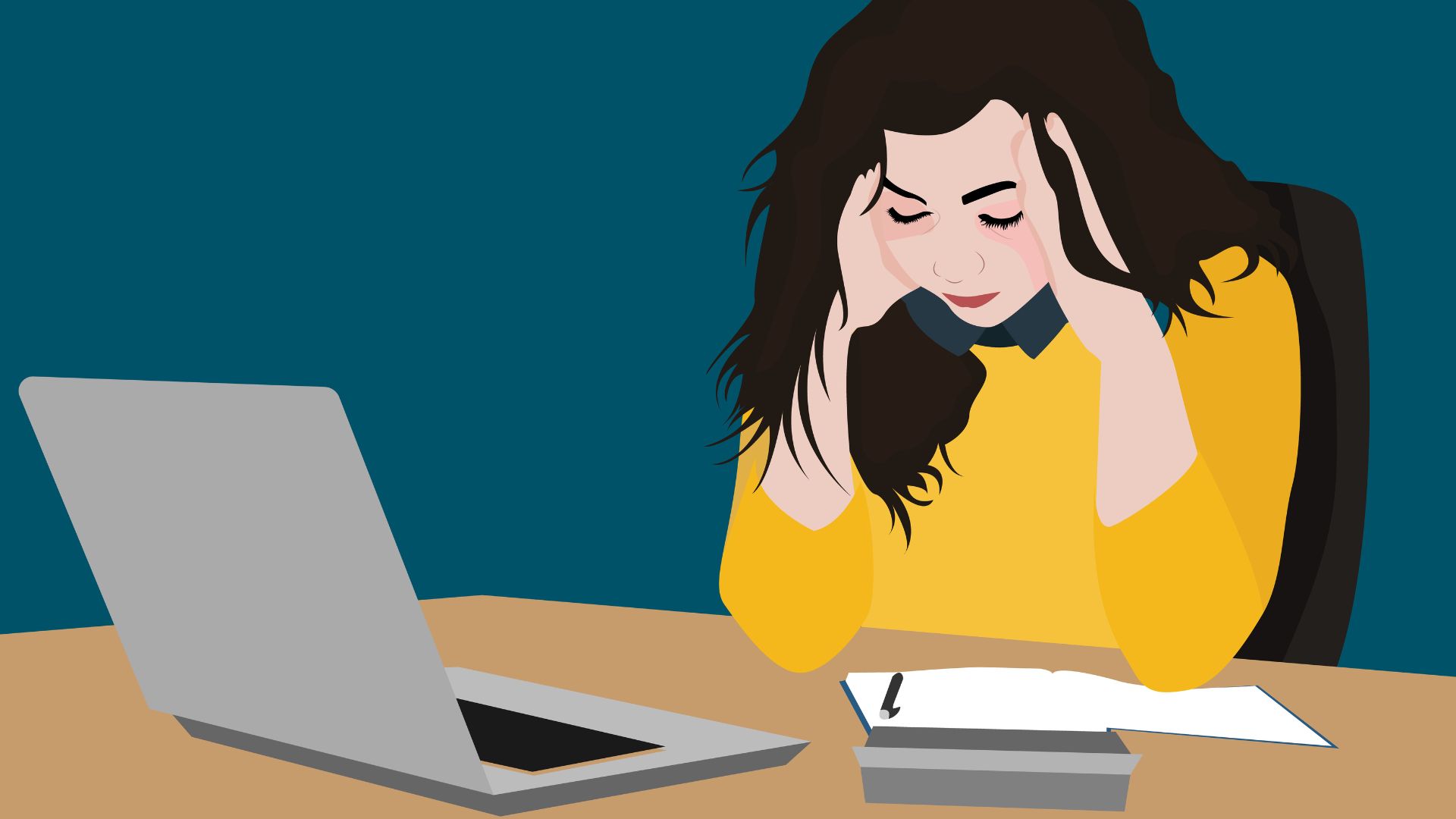"It’s another nail in the coffin" Three women reveal exactly why we need a UK menopause law
A new menopause law in the UK to protect women in the workplace was rejected by the British government. Here three women explain why this was the wrong move


With 1 billion women set to reach menopause by 2025 and concerns rising that more women are leaving work in the UK thanks to symptoms and lacking support from employers, the UK government has been urged to act.
Last year, the cross-party Women and Equalities Committee in the UK published a report highlighting the serious impact menopause has on working life. It found there was a lack of support for women in this life stage and this was forcing them out of the workplace. The report also offered 12 recommendations for improvement, alongside the results of a 2,000-woman survey that found lacking support during menopause to be a reason why many women were leaving work.
One of the recommendations was for menopause to be made a protected characteristic under an amendment to the Equality Act 2010, a discrimination law that protects individuals from unfair treatment. This would have made it illegal to discriminate against someone going through menopause, just as it's illegal to discriminate on the basis of other characteristics like race and gender. Another suggestion was the idea of menopause leave, which would allow those dealing with particularly difficult symptoms time away from work to help manage them better.
At the moment, those living in the UK and going through menopause do have protection under other characteristics in the Act, such as age and disability, but a change in the law would close any loopholes and offer more clarity to those who need it.
However, despite the findings, survey results, and active campaigning from ministers, the British government rejected the proposal to make menopause a protected characteristic. In a response to the report, it said changing the legislation could cause "unintended consequences" and "discrimination risks towards men suffering from long-term medical conditions."
They also rejected trialing menopause leave as they didn't believe it to be "necessary" and suggested that it would be "counterproductive". It's a deeply troubling conclusion considering that the sometimes-debilitating symptoms of perimenopause and menopause are well established.
"With symptoms like brain fog, low mood, fatigue, and hot flushes, menopause can play havoc with careers," says general practitioner and menopause specialist Dr Louise Newson, who is also the founder of the balance app. "In 2021, I surveyed nearly 4,000 women. 99% of respondents said their perimenopausal or menopausal symptoms negatively impacted their careers. 59% had taken time off work due to their symptoms and one in five passed on the chance to go for a promotion."
Sign up to our free daily email for the latest royal and entertainment news, interesting opinion, expert advice on styling and beauty trends, and no-nonsense guides to the health and wellness questions you want answered.
With this in mind, it's perhaps not surprising that the survey results showed women are being forced out of the workplace. Further research from the Fawcett Society also suggests that 1 in 10 women aged 45 to 55 in the UK leave work altogether because of their symptoms.

Unfortunately, this isn't a statistic that surprises many women. Having left an office job to start her own business 14 years ago, Pam Lyddon, 48, is grateful for the move now. Working from an office while going through the symptoms of perimenopause would have been unbearable, she says.
"My team all work remotely and we all agree that it's a godsend when you work from home. I've got everything here. It took a while for my periods to settle down [after going through menopause] and having to go into an office, get on a train, it's so stressful."
Lyddon's symptoms started when she was 44 years old, just before lockdown, a few years earlier than many doctors suggest perimenopause typically begins. "I started feeling dreadful," she tells woman&home. "I started waking up in the morning with very sore joints, it was very painful. It went on for a while and I started getting aches and pains. I started getting hot flushes at night, which is so bizarre especially when you get them in winter. I had this Zoom call with a wonderful doctor [for a diagnosis] and I just sat there crying, just listing things; hot flushes, I could barely walk in the morning, I wasn't sleeping, I was losing my rag out of nowhere. Just really struggling and feeling like there was a little cloud above my head."

Emma Guy, 51, went through early menopause as a result of breast cancer. "I was 46 when I started going through menopause," she tells us. "I went through surgical menopause as I had my right breast removed and re-constructed at the same time. Within 24 hours I started getting hot flushes and my periods stopped straight away. I was actually working in an office environment at the time and I still do. We didn't have any policies, any leave, or any degree of flexibility. My main symptom was hot sweats and, of course, if you get a hot sweat you go red and it gets a bit embarrassing. You have to go outside and try and cool down."
While Helen Normoyle, 55, experienced menopause symptoms including hot sweats, she says it was the night sweats that were most disruptive. "The night sweats were really troublesome because they interrupted my sleep, and if you don’t get a good night’s sleep, it makes it so much harder to function during the day, especially when you’re at work. It made me feel like the time after my kids were born when I had lots of broken nights’ sleep. But you’re that bit older with menopause, so it makes it that much harder to cope."
"Whatever form the symptoms take, they are difficult for women to manage within a professional environment"
Historically, women have been left to deal with menopause symptoms by themselves at work without any support. The legislation proposed by the report could have changed this once and for all, offering women more privacy and autonomy over their health.
"Whatever form the symptoms take, they are difficult for women to manage within a professional environment. Due to their demographic, menopausal women can sit in more senior positions and it's unacceptable that these women may feel they need to hide their symptoms or consider leaving work altogether to cope," says Professor Geeta Nargund, a senior NHS consultant and co-founder of the Ginsburg Women's Health Board.
While menopause leave is vitally important for those experiencing symptoms, differing symptoms speak to the wider need to give women the chance to choose what's best for them. “I think that for some women, menopause leave would definitely be beneficial but every woman’s experience of menopause is different, so I don’t think that you can make a broad brush statement that it would be good for everyone," Normoyle says.
"It's really important that there is a range of options and tools available in the workplace and a work policy that is flexible enough and principles based, to ensure that every woman gets the right support."

Normoyle, who is also the co-founder of My Menopause Centre, continues, "What many people don’t realize is that menopause can impact your mood. It can trigger depression and menopausal anxiety, and it can really negatively impact your self-esteem and your cognitive ability. Because of all of this, if somebody is not feeling in a good place at all, some time off to heal themselves, to find the right treatment and solutions for their symptoms, might be exactly the right thing for them to do."
For Guy, the flexibility offered by menopause leave would have helped for two reasons. "It would have helped from a family point of view, helping them and helping me going through that. From an opportunity point of view, I could have gone to find other things that could have helped me like reflexology, acupuncture, massage, and anxiety coaches. I'm not allowed to take HRT but I did research it and I needed time to do that."
If you have the opportunity to give someone that time, surely you've got to offer it, she says. "Those working for you would feel supported and valued, ultimately. It doesn't take a lot for someone to feel valued and that potential worker wouldn't then leave the business."
"As a nation, we are so far behind"
But this failure to properly support women's health isn't just a one-time event. For some, the decision to reject the recommendations is just another example of the UK government's consistent failure to prioritize women's health. "It's another nail in the coffin. As a nation, we are so far behind. As women, we really do go through so much and we just need a break," Lyddon says, citing the ways the government has historically failed to support women - from a lack of proper childcare support to workplace inequalities.
It's a sentiment backed up by official figures as well. The rejection of UK menopause law landed at the same time as the latest Hologic Global Women's Health Index, which ranks Britain lower than China, Saudi Arabia, the US, and Australia for women's healthcare. Britain sits alongside Slovenia, Kosovo, and Kazakhstan in the rankings, with experts citing poor access to screenings, a lack of mental health support, and long waiting times for diagnosis as among the reasons.
"I just think the government is so short-sighted and I just feel that this government is all about the men. We're constantly fighting us women. We go through so much and the men just don't. I don't get it, they would have such a happier nation [if women had better support]."
So while the government may think they "have put women's health at the top of the agenda", per the spokesperson's response to MPs and the media, the evidence seems to suggest otherwise.

Following the UK government's rejection of the legislation, the onus will now be on individual companies to offer employees policies that are supportive and versatile enough to keep them in the workplace. It's an idea that Guy felt so strongly about last year that she and a group of colleagues joined the small pool of companies already instigating policies around menopause, independent of any government guidance.
"I’m pleased to say, last year, I was on a steering committee where we wrote a menopause policy and delivered it to our workforce," she says. "It’s written in the contracts now that there is flexibility and that menopause is openly discussed. We’ve encouraged speaking about it, we’ve done training sessions on it. From not having that degree of flexibility to where we are now, I think that’s a real positive change. It is disappointing because this legislation could have made a positive change. We need to look after our workforce."
However, if you're worried about experiencing menopause while at work, how others may respond and your company isn't one of the few offering unique policies, there are pre-established protections.
Protections available for women in the workplace
“Although this news might be upsetting to hear, women need to know that the law is in their favor and is not abandoning them," says Caroline Jennings, an employment and discrimination barrister. "Despite not being explicitly provided for as a protected characteristic in the Equality Act 2010, discrimination by reason of menopause is covered by existing protected traits."
Jennings, who works at No5 Barristers, says there are a number of existing characteristics protected under the Act that can be used in the circumstances. "Sex and Disability are the main two. Many people don't know that as menopause can have a substantial long-term adverse effect on someone’s ability to perform everyday tasks, it's frequently classed as a disability for the purpose of employment law. This same category would protect men with long-term medical conditions with a similar level of impact, thereby avoiding any suggestion of inequality of protection within the workplace."
If you are facing discrimination at work due to menopause, the best course of action is to contact a lawyer who can help walk you through your options.

Grace Walsh is woman&home's Health Channel Editor, working across the areas of fitness, nutrition, sleep, mental health, relationships, and sex. She is also a qualified fitness instructor. In 2025, she will be taking on her third marathon in Brighton, completing her first ultra marathon, and qualifying as a certified personal trainer and nutrition coach.
A digital journalist with over seven years experience as a writer and editor for UK publications, Grace has covered (almost) everything in the world of health and wellbeing with bylines in Cosmopolitan, Red, The i Paper, GoodtoKnow, and more.